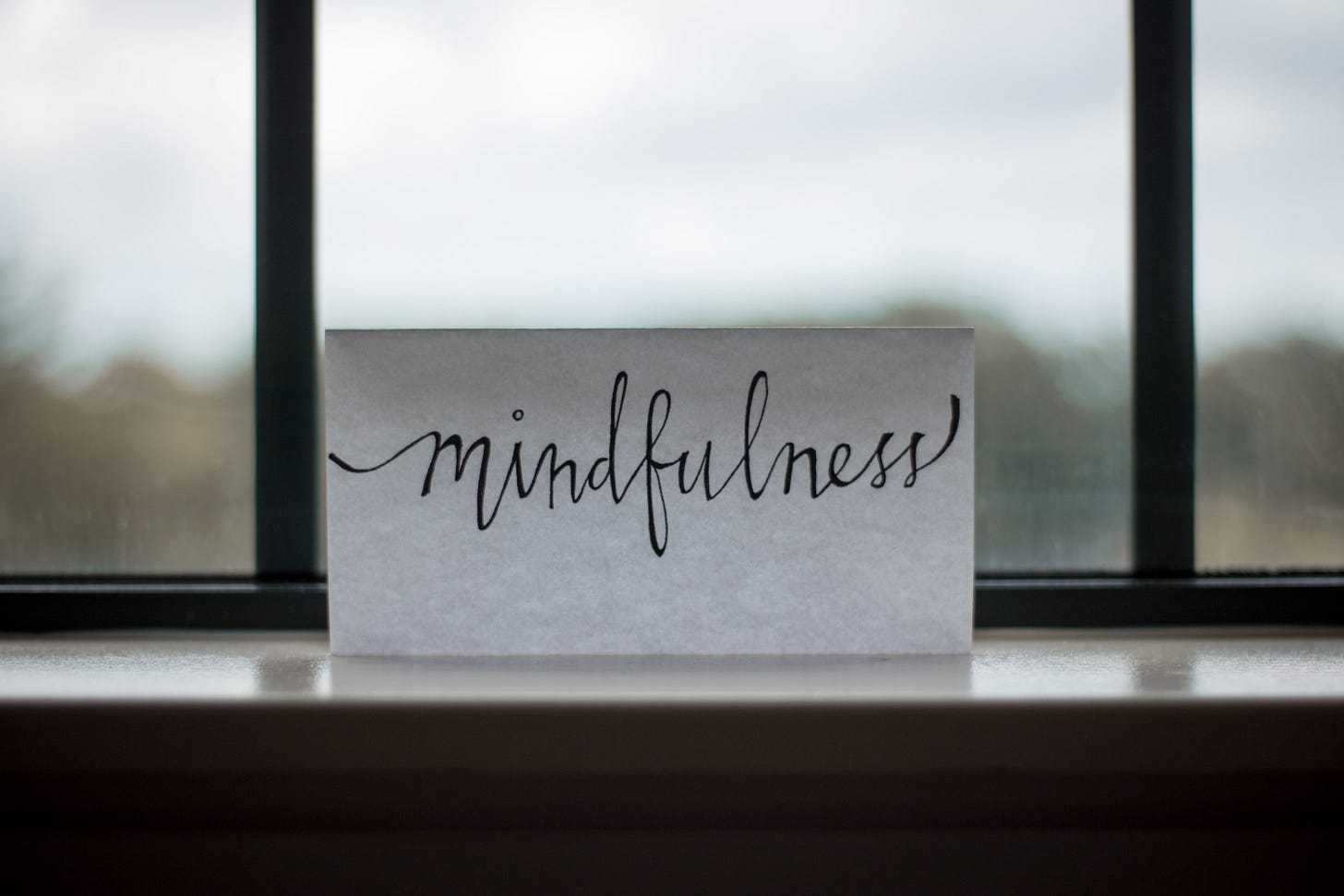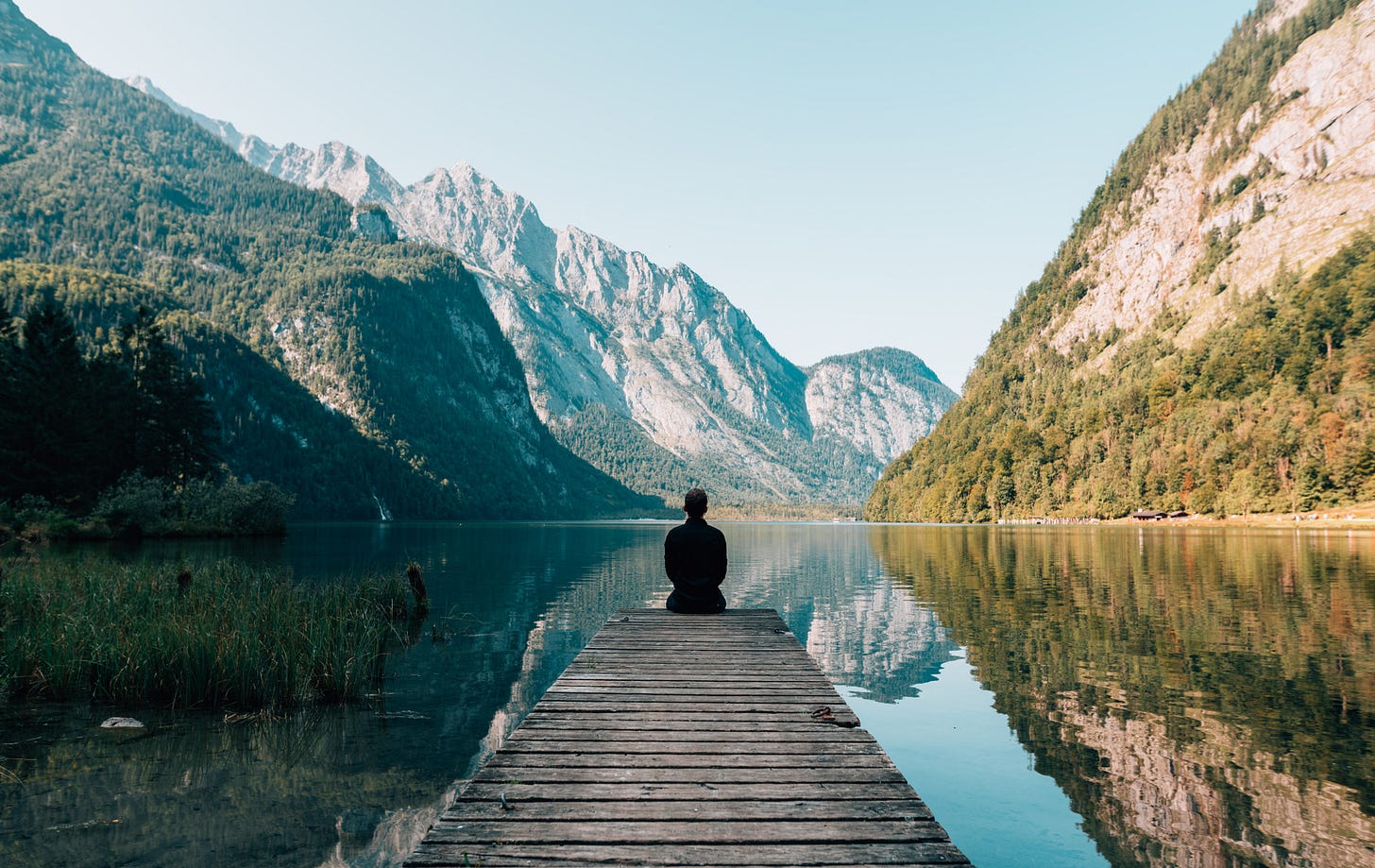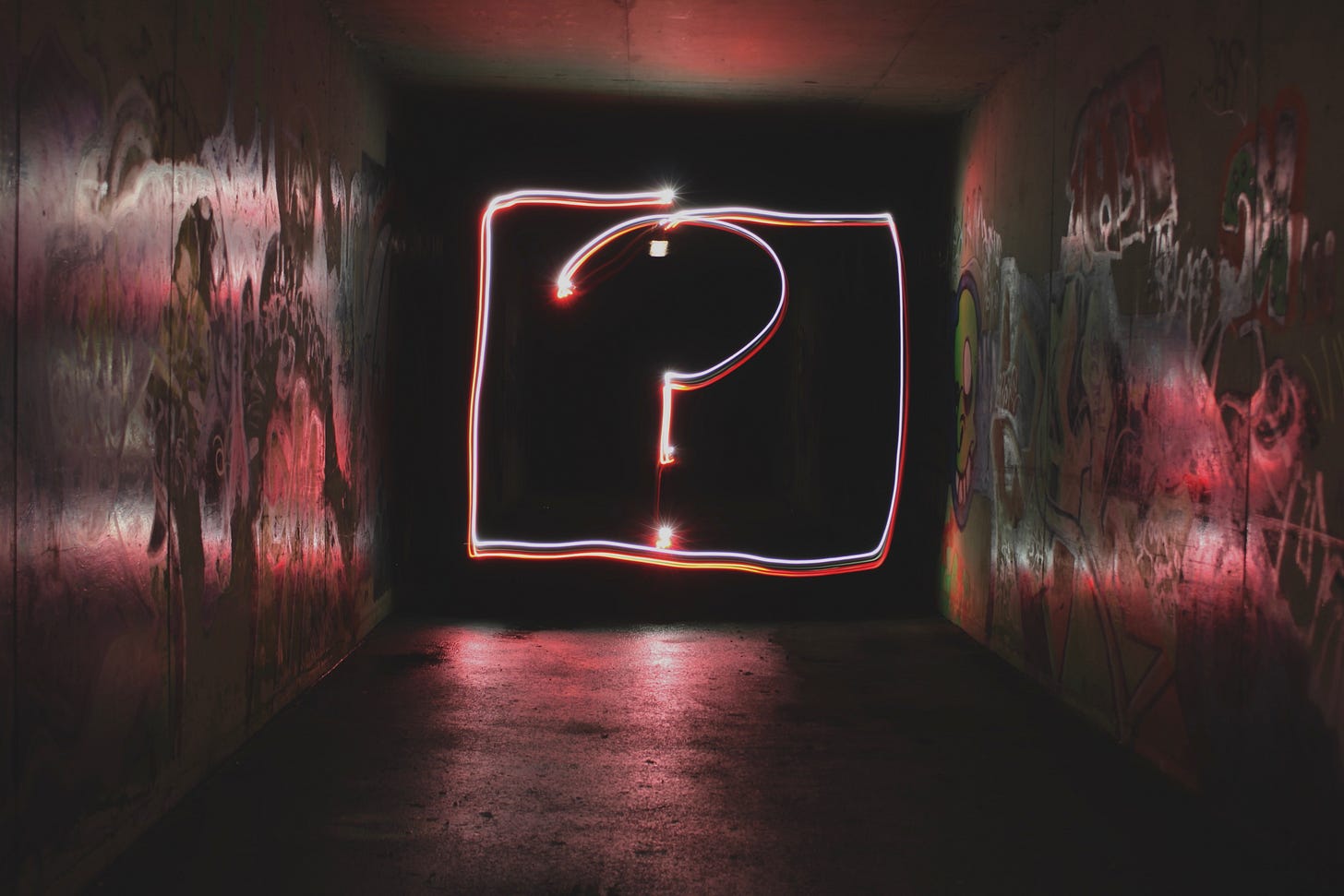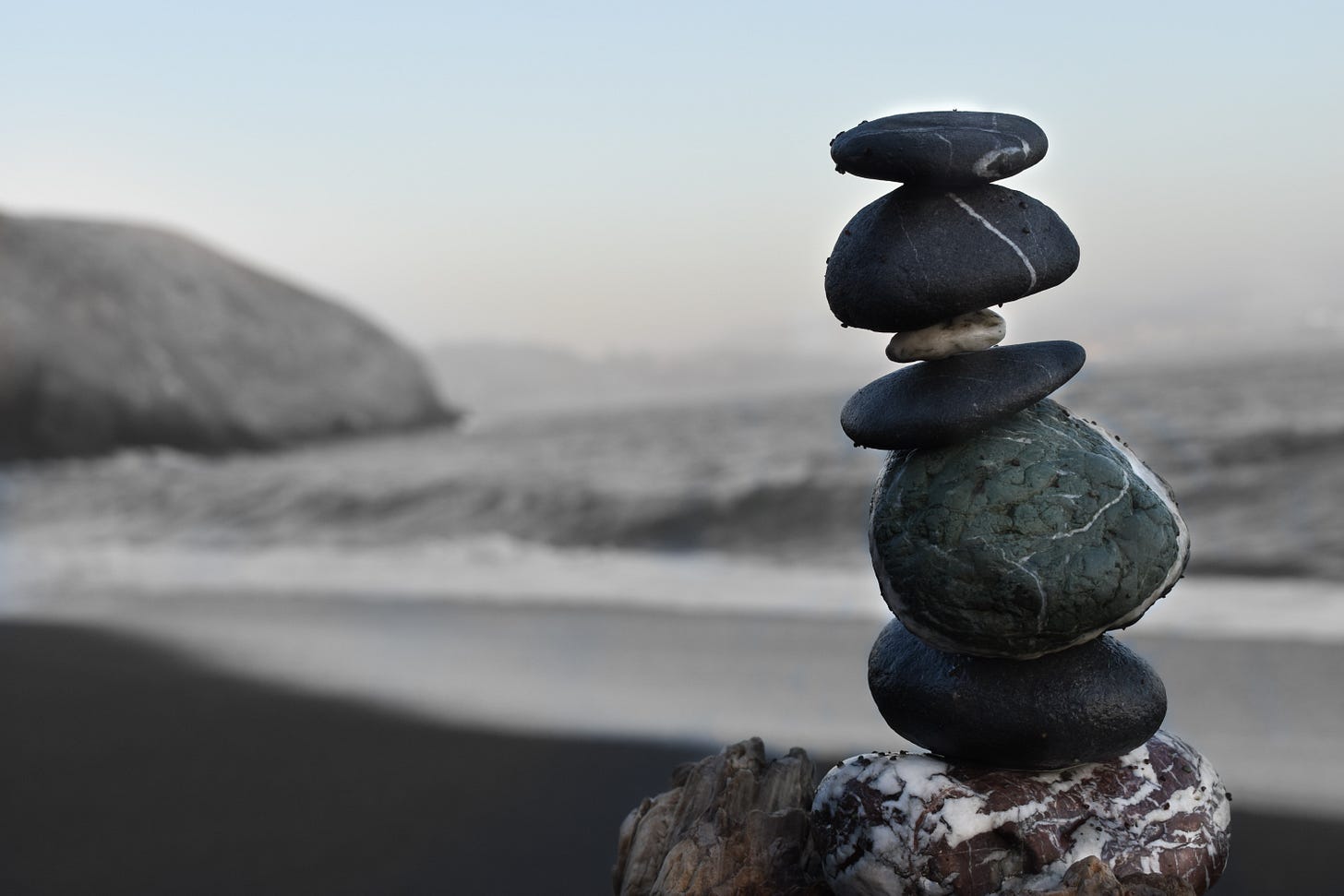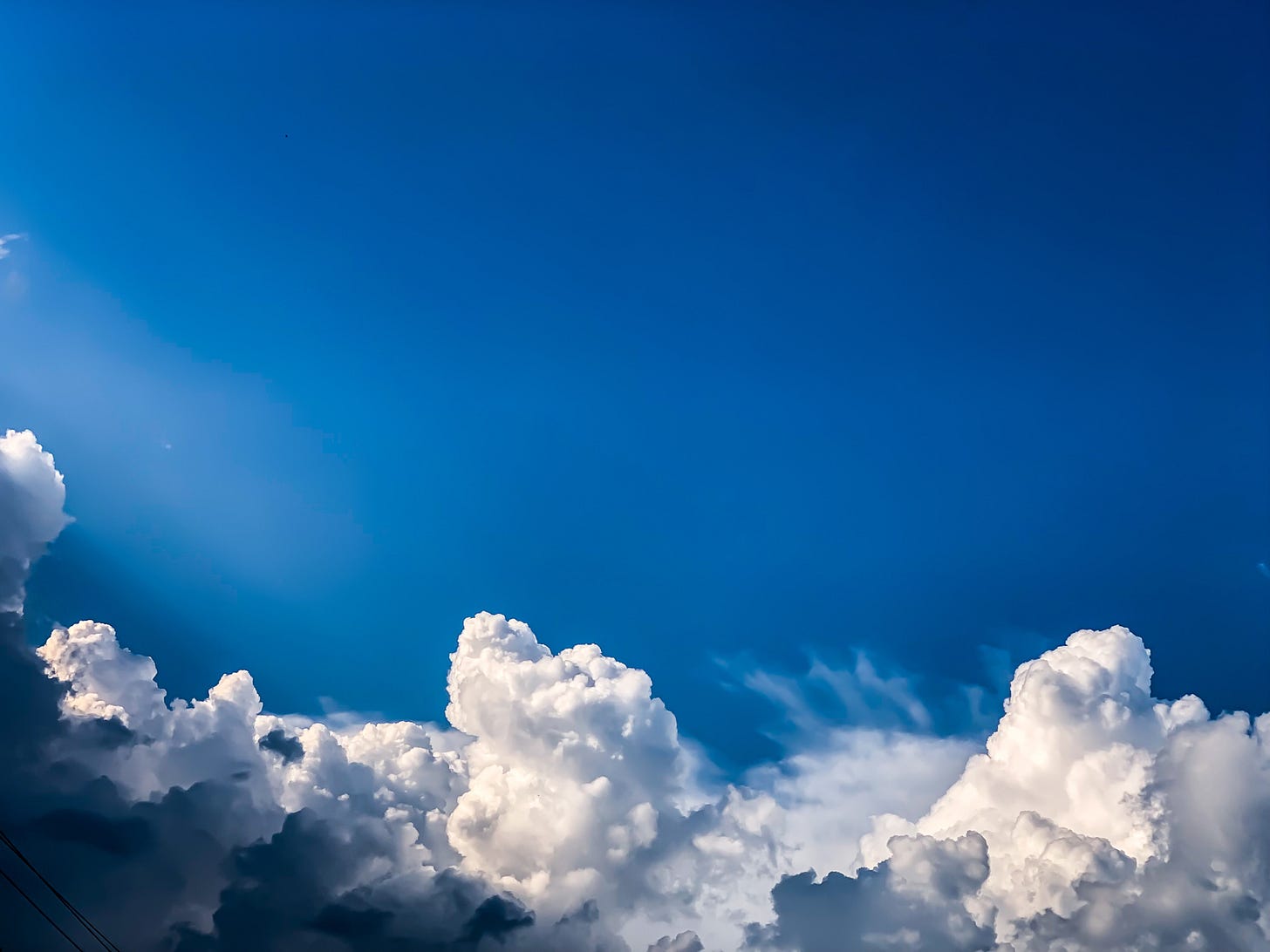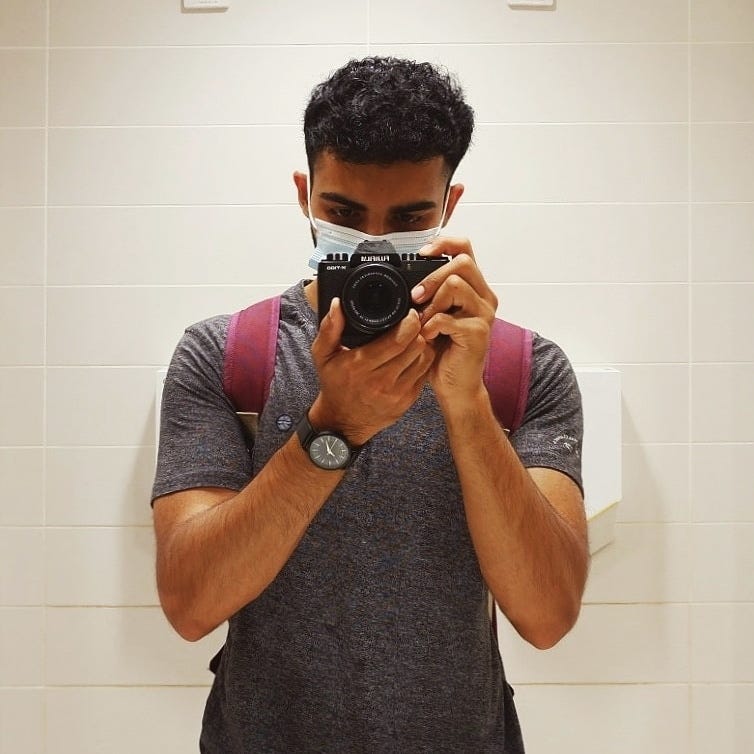Hi! Welcome to another edition of Daanish Writes, the weekly newsletter where I share ideas about personal growth, life design and my thoughts.
This week we're talking about: 1) Mindfulness
As usual I begin with my intentions: In this newsletter I will talk about mindfulness, what it is, what it isn't and how you can start practicing it to increase the level of calm, peace and serenity in your life. With the current pandemic situation, I think it's important we take extra time to look after ourselves physically and mentally, and the best place to start is with the mind.
I hope this also serves as a reminder to focus on yourself this holiday season.
Photo by Lesly Juarez
Here's the background behind this newsletter's inspiration:
I just finished term 1 of university. As I settled into my seat on the flight home I was far too tired to watch a movie or read a book and too uncomfortable to fall asleep. That left me all alone, with my thoughts.
I began to reflect on the past few months, my studies, social life, my health - both physically and mentally. With 3 weeks off ahead of me and no upcoming exams, I asked myself, What's the best way to spend this time off?
After some deep thinking I came to the conclusion that I should work on the quality of my mind.
While I was at university I did well. I was studying every day, exercising, socialising and eating well. One thing I wasn't doing much was taking care of my mind. I felt my baseline levels of stress rising as the exam date approached. I frequently felt overwhelmed with work and I experienced a lot of decision fatigue, often resulting in bad decision making.
I managed fine, but had I spent a little more time looking after my mind, I might have had a more pleasant experience.
Enter mindfulness.
My relationship with mindfulness has been quite a rollercoaster over the past few years. It's a weird one because I know full well it's so good for me yet I struggle to make the time for it.
The new year is approaching and this is the time of year where people are most likely to make real change to their lives, me included. So over the next few weeks I've decided this is going to be my main focus. To build a daily habit of practising mindfulness to increase the quality of my mind.
Note: If you enjoy this email, please consider forwarding it to someone who would get a lot out of it. If you were forwarded this email, you can sign up here to receive it each Sunday. It’s free
Photo by Simon Migaj
What is Mindfulness?
Mindfulness is the art of being present. It's an ongoing process of continually drawing your attention to whatever exists right here and now. The present moment.
Think of all the tasks you do on a daily basis like eating, brushing your teeth, getting dressed, driving etc. When you're doing these, it's so routine that you can switch off your brain and take a back seat, letting auto-pilot override the action, without you having to even think.
Being present is turning off this autopilot and tuning in to your surroundings and your senses.
It's about bringing your awareness to the literal present moment. Right now you're either standing or sitting while you read this, can you feel the contact between your body and the seat or floor beneath you? Take a moment to bring the feeling of touch into your consciousness. While you're focusing on that present feeling of touch, your mind is occupied so it can't focus on the future or past. That's one simple method of being present.
Mindfulness is the toolkit that we use to be present and it has many benefits, with continued practice it can:
Reduce stress
Increase patience
Help you get in touch with your emotions
Improve sleep
Boost energy
Calm the mind
If I told you that you can achieve those from just 10 minutes of mindfulness a day, would you believe me? Try it out for yourself and see.
There are some things in life which cannot be explained, they must be experienced. The benefits of Mindfulness is one of those things.
The level of peace and calm I feel after doing a little mindfulness activity is unmatched. It's gotten me through some of my toughest times and it's helped me make the most of my most joyful times too.
Hugh Jackman gave a really nice description of his experience from mindfulness in this podcast episode:
When you first pour a glass of water, it’s cloudy. And then, in a period of time, that all settles, and you see crystal clear through the glass, through the water. That’s what meditation does for me.
It’s got that feeling where things drop down. I have a feeling of coming home, the feeling of experiencing my true self and not just being caught up in the monkey mind or being reactive to life. And it gives me a finer energy.
I don’t always get out of meditation, like, ready to, you know, do a one-hour Peloton class, but I always come out with a finer energy.
My intention feels clearer. My listening is more purposeful, and things feel easier and more connected.
Doesn't that sound nice? Like something you would like to experience? If so, keep reading and I'll show you how you can achieve just that.
Photo by Emily Morter
Misconceptions
There are so many misconceptions about mindfulness.
Mindfulness is not about emptying the mind, but merely noting whatever is there without judgment.
People often think that it's all about clearing your mind and not having thoughts.
That's the complete opposite.
Mindfulness is all about acceptance and understanding.
Accepting change, accepting thoughts, accepting emotions, then understanding each of them in turn.
When we accept our thoughts and emotions we understand ourselves better.
Think of it as building a relationship with yourself. You are getting to know you.
It would be impossible to get to know someone without listening to them, the same applies to yourself. You have to listen to yourself in order to build that connection, mindfulness teaches you to do this in an open, non-judgemental manner.
Normally, when you have a negative emotion, you shut the door on it. Anger arises and we try to suppress it. That's problematic because it builds up under the surface, causing stress and tension until you blow up - often at the expense of a loved one.
Mindfulness teaches you to let it in, observe it, understand it and finally, let it go.
Photo by Colton Sturgeon
Conditions for Mindfulness
Another misconception is that to practice mindfulness you have to be in a quiet and calm environment and you have to sit still with your legs crossed in a way that challenges your flexibility.
That's just not true.
You can practice mindfulness on the London underground, in a crowded area, seated, standing, walking or even running.
All it takes to be mindful is to tune into the present moment. When you start to practice doing this, you will be able to find peace in some of the least peaceful environments.
You have a number of senses - just take the time to focus on each one in turn. I like to follow this simple routine when I want to be mindful:
What can you see?
What can you hear?
What can you feel?
What can you smell?
What can you taste?
How do you feel? What's on your mind?
These questions will help you focus on the present moment without being overwhelmed by information. Do them one at a time, nice and slow.
Photo by Rob Martinez
The Blue Sky
This is by far my favourite mindfulness analogy that I have come across, from the headspace app.
Your mind is like the sky. When it is clear the sky is blue. When thoughts and emotions arise, clouds appear and your mind is a little foggy.
Each thought or emotion is a cloud.
(This explains the phrase "Clouded with thoughts")
Whether there are clouds or no clouds, that blue sky is always there above. You'll know this if you've ever been in a plane, when you go through the clouds there is always a blue sky above the clouds. To find peace of mind, you need to focus on the blue sky, even on the cloudiest days.
Our brains can only attend to a handful of things at once, so when you have an influx of thoughts, it can be difficult to focus on that blue sky with all the clouds in the way.
If you try to ignore the clouds they will just pile up, making it even harder. So you have to acknowledge them, accept them, understand them and let them go.
We are usually worried about the future or dwelling on the past, leaving no space to focus on the present. Mindfulness is the key to putting those negative thoughts aside, to allow room for the present.
That is easier said than done and it takes a lot of practice, but with consistent and concentrated practice, you will get there.
Mindfulness Methods
In the upcoming weeks I'll be adding a section to my newsletter called Mindfulness Methods where I share a number of Mindfulness Exercises that you can do during this holiday period and after. I'll also share them on my Instagram, hopefully this will give you ideas on how to look after your mind whilst we're all at home.
Alternatively you could invest in this set of 25 Mindful Exercises (£16.50) that I bought for my sister's birthday this week. We've been doing a different mindful exercise each day. In total there are 25 exercises, each with a card that fully explains how to do it. They're all super simple and take no longer than 15 minutes a day. If you're looking for a nice gift for someone or to start mindfulness practice yourself, this is the perfect way! (Not sponsored, I just loved this so much I might get myself one!)
I hope this newsletter was helpful. I urge you to try mindfulness for yourself, it is the ultimate form of self-care.
If you made it this far, thank you for taking the time out of your day to read this. I appreciate it more than I can put into words :)
(Note: If you enjoy this email, please consider forwarding it to someone who would get a lot out of it. If you were forwarded this email, you can sign up to receive it each Sunday evening. It’s free.)
✏️Insights of the week:
💬QUOTE OF THE WEEK:
If you're serious about change, you have to go through uncomfortable situations and stop trying to dodge the process. It's the only way to grow.
👁️INSIGHT: I'm taking a caffeine break over the next month. Recently my eyelid has been twitching a lot so I thought I'd take a break from coffee and tea (I get twitchy eyes when I have too much caffeine).
What I noticed is since I stopped having caffeine, I'm finding it easier to say no to unhealthy desires. My willpower and discipline have noticeably improved!
I'll explore this some more in the coming week and do a full blog post on this but for now all I'll say is - Saying no is a very good way to build discipline.
📖CURRENTLY READING: Ikigai by Hector Garcia Puigcerver - This book is amazing, I'll be writing a lot about it in the new year so look forward to that!
About the Author:
That’s me! I’m Daanish, I’m a Biomedical Science Graduate and a first year Medic studying in Aberdeen.
I like reading, writing, exercising, anything mindfulness-related and coffee.
If you want to discuss something further, make a friend or just have a chat, please reach out! I love connecting with like-minded people.
You can find me on 📽️YouTube, 🐦Twitter, 📸Instagram and 🤓LinkedIn.
If you liked this post, consider sharing it with someone who might like it, I’d really appreciate it 😊



